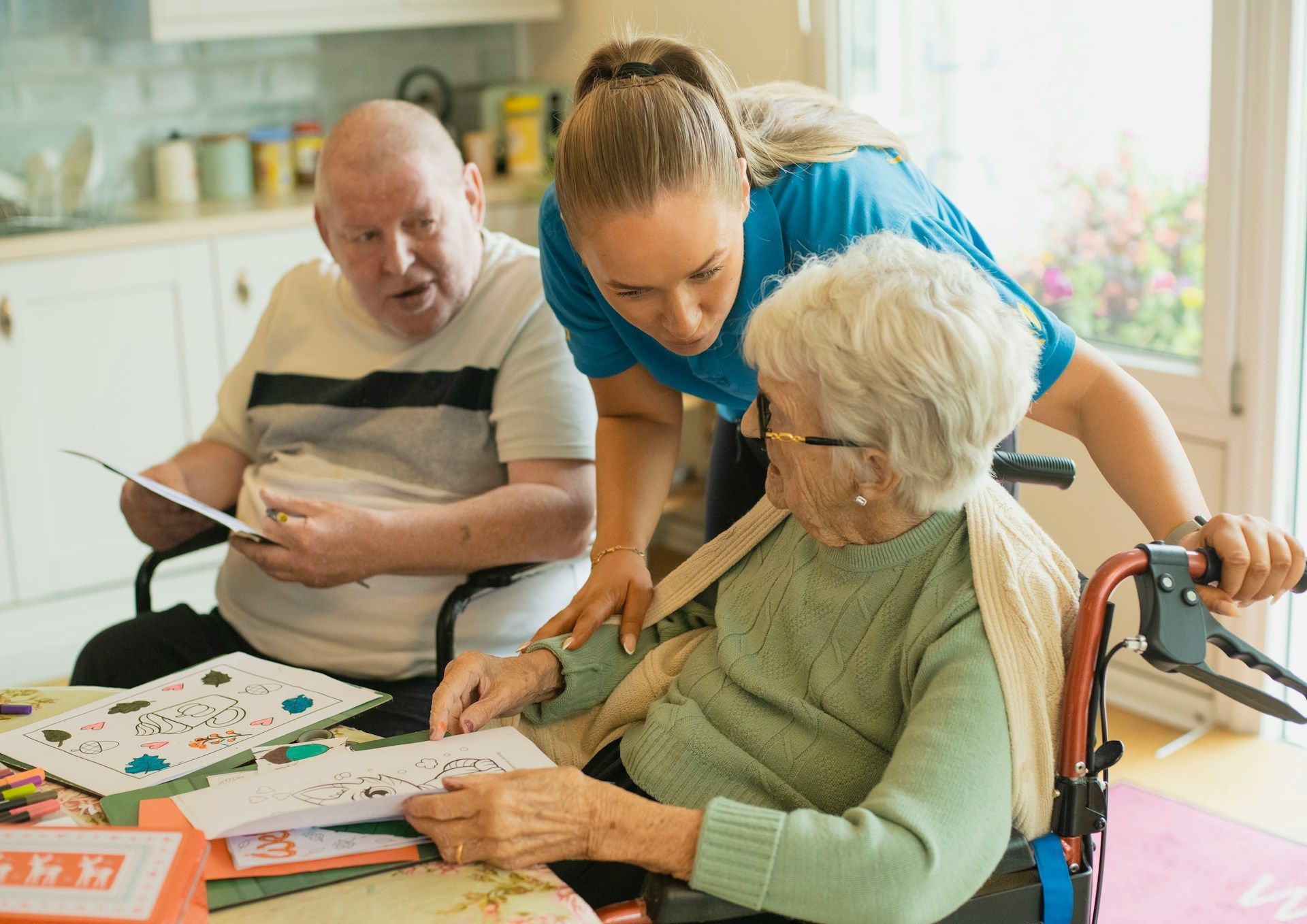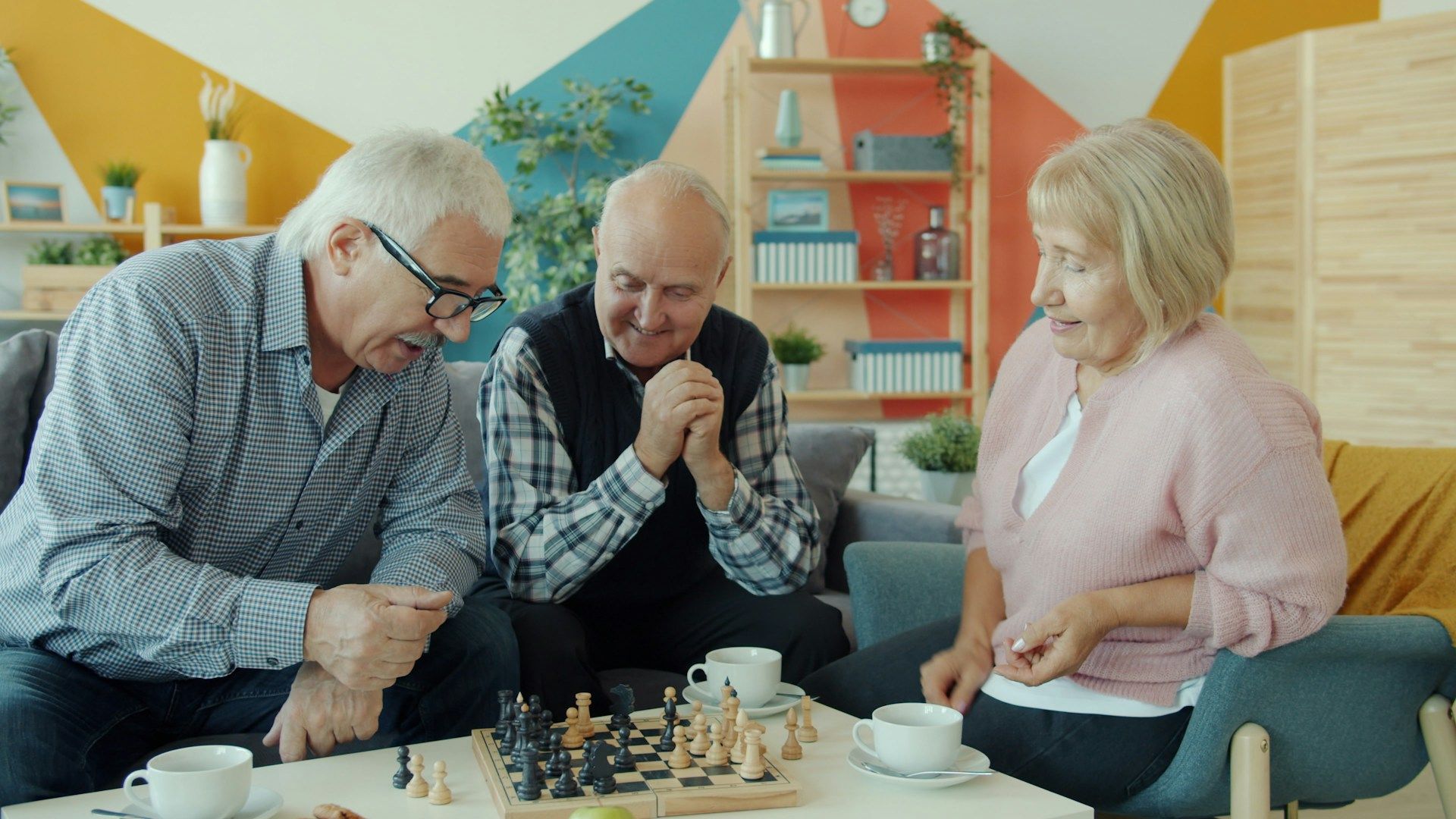How to Help Seniors Feel More Comfortable in New Care Settings
Moving into a new care setting can be a big shift for older adults. Even when the change is necessary and comes with many benefits, it can still feel scary or overwhelming. Whether it’s the shift from living at home to being in an adult day care center, assisted living, or another care setup, seniors may experience a mix of emotions. They might worry about losing independence, missing their familiar routines, or adjusting to new people and spaces. All of this is completely normal.
Helping them feel more comfortable starts with understanding the emotional side of the move. On Oahu, where family and community bonds are strong, it’s especially important to make changes feel respectful and peaceful, not rushed or forced. There are simple, real-world ways to ease the transition for your loved one. A thoughtful approach gives them a better chance to settle in gently and feel cared for from day one.
Understanding Their Concerns
When seniors enter a care environment that’s brand new to them, nerves are common. They may worry they’ll lose their privacy. Some fear they won’t fit in socially or that they’ll be forgotten by people close to them. For others, it’s feeling out of place because of new routines or unfamiliar surroundings. Even if everything around them looks welcoming, it still might not feel like home just yet.
One of the best ways to support them begins with simply listening. Creating space for seniors to talk about how they feel helps more than most people realize. Be patient. Let them speak freely, without correcting or rushing them. Focus on showing compassion with both your words and your tone. Just being heard can go a long way.
Here are a few helpful ways to open the conversation:
- Ask open-ended questions like, “How are you feeling about the move?”
- Listen carefully without interrupting or jumping in with advice too quickly.
- Acknowledge their feelings rather than trying to quickly fix them.
- Use reassuring phrases like, “It’s okay to feel unsure,” or, “We’re here with you through this.”
- Speak clearly and calmly without using complicated language.
If your loved one isn't ready to talk, that’s okay too. Some seniors process change more quietly and take time before expressing themselves. Try bringing it up at different times, maybe during a walk or while having a snack. Just make sure they know the door is open when they’re ready.
Familiarizing With the New Setting
Once you’ve acknowledged their concerns, the next step is to help them get familiar with the care environment before making it a regular part of their life. Letting them ease into it can reduce anxiety and make the space feel far less intimidating. Instead of jumping in all at once, introduce the care setting through small, friendly steps.
Here’s how you can do that:
- Schedule a short visit. Let your loved one walk around, meet staff, and see the daily activity schedule at their own pace.
- Point out positive things during the visit. A sunny garden area, people smiling during lunch, or a group working on crafts can help them build better first impressions.
- Arrange for your loved one to join an optional group activity, no full commitment required. Even observing from the side is progress.
- Visit more than once, if possible. Repeat exposure can build comfort and familiarity.
It’s also a good idea to create a simple, easy-to-follow daily routine early on. Predictability can help give seniors a sense of control. Keep in mind what times they like to eat or rest and align the new setting as closely as possible to what’s already familiar.
For example, if they’ve always enjoyed tea at 3 p.m., try to keep that going. Small connections to the life they know can add stability. The goal is to make sure your loved one doesn’t feel like they’ve been dropped into something foreign, but rather slowly welcomed into a new routine with care and attention.
Personalizing Their Space
Moving into a new space can feel a lot more comfortable when it includes things that feel familiar. Giving seniors a bit of control over their own environment might help ease stress and make their day-to-day life more enjoyable. It doesn’t take a complete redesign. Even a few personal touches can go a long way.
Start by bringing some of their favorite items—ones they connect with on a daily basis. That could be a cozy blanket from their old home, framed photos with family, or that small wooden clock they always checked the time on. Even a particular mug they used every morning has meaning. These are more than just objects. They hold long-time habits and memories.
Here are a few simple ways to set up a comforting space:
- Let them pick out a few favorite items for their table or room.
- Look for soft lighting if the room feels too clinical. Adding a warm lamp can help.
- Use scents they’re used to at home, like lavender potpourri or unscented if they’re sensitive.
- Hang familiar wall art or calendars with family events marked, giving them something to look forward to.
- If they’ve always loved plants, include a small potted one that’s easy to care for or artificial ones that are low-maintenance.
It’s important to involve seniors in this setup process. Ask for their input instead of doing it all for them. When someone has a say in how their space looks, they tend to feel more settled and respected. It shows that their preferences still matter, even when routines are shifting.
Encouraging Social Connections
One common fear about joining a care setting is feeling isolated or out of place. Many seniors wonder if they'll be able to connect with others or feel like part of the group. That’s why it’s helpful to start small and introduce gentle ways to build relationships early on.
Try talking about the social parts of the care setting in a positive way without adding pressure. Let them know it’s totally okay to take their time. A slow introduction to group activities like games, music, or light exercise sessions can offer the chance to meet others who are at the same stage. Even sitting nearby and watching can warm them up to the idea.
Look for shared interests. For example, if they love gardening, ask if there’s a garden club or someone else who enjoys plants. These common threads make it easier to break the ice. Care staff might even be able to partner your loved one with someone who shares a similar background or hobby.
It's also helpful to schedule visits at times when group activities are happening. That way, you can both observe and see how things flow. You can mention things like, “That group looks like they’re having fun. Want to just sit and watch for a bit?” Sometimes, seeing laughter and conversation in person helps lower hesitation faster than any words can.
Practical Support And Reassurance
Even after the move happens, your support matters a lot. Transitions take time. Some days may feel great, others might feel off. That’s when reassurance can really make a difference. Staying present, even in small ways, shows your loved one that no matter where they are, they’re never alone in the process.
Here are a few things you can do regularly:
- Call or visit often. Whatever you can manage consistently matters.
- Keep a familiar schedule for contact, like phone calls every evening or breakfast together on Sundays.
- Bring small home comforts like favorite snacks when you visit.
- Encourage conversation without only focusing on their care. Ask about their day, what they’ve seen or done, and how they’re feeling.
Set up a plan for how to respond if something feels off. Maybe they seem withdrawn, or something’s bothering them. Work with care staff early on to know who to talk to and how to help sort things out. Being proactive lets your loved one feel like their voice counts.
Transitions don’t happen overnight. Keeping a calm, steady presence can do more than any single conversation. Just showing up, regularly and thoughtfully, helps seniors feel grounded and cared for.
Nurturing Comfort in a New Care Environment
Helping seniors adjust to a new care setting doesn’t mean forcing them to accept change all at once. It’s about giving them tools, time, and support to find calm in the unfamiliar. On Oahu, where family ties and cultural values play a strong role, it’s even more important to treat these moments with respect and patience.
Stick with the basics. Listen, involve them in decisions, and keep their routines in mind. Add in familiar surroundings and natural ways to meet others. Over time, those steps can help create a setting that feels less like a facility and more like a second home.
Confidence builds when seniors feel safe, heard, and respected. When they begin to feel like themselves again—even in a new place—every thoughtful step taken along the way proves worth it.
If you're looking for reliable ways to ensure a smooth transition for your loved one while embracing
senior care on Oahu, consider the welcoming environment at Hale Hau’oli Hawai’i. Discover how our adult day care services can support your family through this journey.










